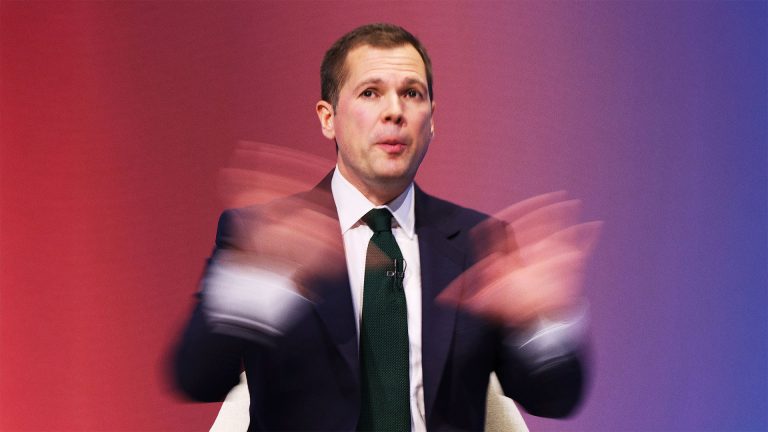The year is but two days old and already the Daily Telegraph is on the Brexit warpath. It has published yet another piece claiming that despite all evidence to the contrary, leaving the European Union has not been the disaster that we believe it to be and that those who say it has must have got their figures jumbled up.
This time the article is by Julian Jessop, an independent economist affiliated with the discredited Institute of Economic Affairs (IEA) think tank, which brought you the triumph that was Trussonomics. I have noted that he occasionally comments on my articles in the tone of a disappointed teacher seeing a dull student make yet another basic error.
To be fair, I am not an economist but Mr Jessop is. And yet he seems determined to make the so-called “dismal science” even more dismal.
His Telegraph article starts with the observation that Remainers like myself have been saying that leaving the EU is costing the UK economy some £100 billion a year, or £40 billion in tax, or to put it another way, 4% of the country’s GDP. And Jessop’s contention is that this figure is plain wrong.
The figure didn’t start with Remainers though. It is based on research by the Office for Budget Responsibility – an independent government body, funded by the Treasury. The OBR has predicted pretty much from the start that lower trade, less investment and lower productivity would hurt the British economy and cost it 4% of growth over 15 years.
Besides claiming that trade has not been damaged by as much as the OBR thought – which of course is itself an admission that Brexit HAS damaged trade – Jessop goes on to claim that the OBR’s calculations do not take into account the benefits of Brexit, such as new trade deals or lower regulation. But then as he admits, the reason they don’t do that is because these are so small as to be meaningless or that they haven’t yet come to fruition.
He criticises the OBR’s work for being the accumulation of 13 other studies into the subject. Citing other eminent experts used to be seen as rather a good thing when I was a student but apparently it is now a terrible weakness.
Jessop then takes aim at the work of several people including John Springford of the Centre for European Reform, who created a “doppelganger” of a UK economy to which Brexit never happened. This ‘shadow economy’, built through sophisticated modelling, reacts just as the UK has done in the past so we can see how the UK has performed in comparison with the model since Brexit. Springford’s model assesses the hit of Brexit as being 5%.
Jessop says there is a fundamental flaw in models like these, because he claims they assume “any divergence in economic performance between the UK and the control group can only be due to Brexit. This is clearly nonsense.”
His point that such modelling “glosses over” the impact of Covid or the global energy crisis, is naïve. Surely the whole point of a doppelganger model is that Brexit is the only difference between it and the UK? The doppelganger reacts in the same way as the UK would to other shocks like Covid, as both experience the same shocks; Brexit is the shock that the “twin” doesn’t and can’t be affected by.
Mr Jessop does go on to suggest his own model for comparison, the Euro area. This includes – by his own admission – notoriously unreliable GDP figures from Ireland and Germany, which Jessop doesn’t mention has been hit far harder than most of its peers by the energy crisis and other problems.
Using this “model” he concludes that the UK is 1% worse off than it would have been without Brexit, or £25 billion a year. If this were the extent of the damage it would still be no small hit, and one that would go on stinging for years to come – remember the OBR calculates the hit as 4% over 15 years and we have only been outside the EU for five years so far.
But strangely enough, what is really missing from this article is the counterbalance. Where are the eminent institutions, economists and economic modellers who believe that the UK is actually better off because of Brexit, and by how much?
Surely we must be in the sunlit uplands by now? Better regulation and new trade deals must be working. Removing the dead hand of Brussels must have created a surge in growth and confidence, investment, and productivity?
If any of that has happened, the peer-reviewed papers proving such a bonanza are very well hidden, their doppelganger models seem to be rather silent. Their immaculate, sturdy, and believable findings have somehow not made it into the media, or academia, as far as I can tell.
No, Jessop still agrees with us that Brexit has been damaging to the UK – he thinks less damaging than others, but damaging all the same. This is the best he can do for Brexit.
Needless to say, his explanations of why things are not quite as bad as you might think do not convince this reader either. Three out of 10, must try harder.











